Best Foods For Healthy Skin
 Food can improve your health or cause health issues. A healthy diet positively affects all of the body, including the skin. While many fitness centers only offer an exercise program, we offer a personalized diet and exercise program at VIP Fitness in Fort Lee, NJ. You’ll be amazed at the difference eating healthy can make. It can make weight loss easier, improve health issues, and even make your skin look its best. Good nutrition builds strong cells and improves your complexion from the inside. It can improve your skin far better than any expensive cream or lotion.
Food can improve your health or cause health issues. A healthy diet positively affects all of the body, including the skin. While many fitness centers only offer an exercise program, we offer a personalized diet and exercise program at VIP Fitness in Fort Lee, NJ. You’ll be amazed at the difference eating healthy can make. It can make weight loss easier, improve health issues, and even make your skin look its best. Good nutrition builds strong cells and improves your complexion from the inside. It can improve your skin far better than any expensive cream or lotion.
Knowing your skin type can guide you to the best diet.
Most people know whether they have dry or oily skin. It’s as simple as washing and drying your face, waiting a few hours, and then examining it. If your cheeks look dry and flaky, it’s dry. If it’s oily around the nose and above the brow—the T-zone—but the cheeks are dry, it’s a combination skin. If you place a tissue on your skin after two hours and the tissue sticks due to grease and oil, it’s oily. A healthy diet can deal with each type of skin and help troubled skin that is prone to breaking out.
Include a wide assortment of colorful fruits and vegetables.
Plant phytonutrients can determine the color of the produce. For instance, a deep red, purple, or blue color indicates anthocyanin, a powerful antioxidant that also makes blueberries blue. It’s anti-inflammatory and can help reduce skin irritation that causes breakouts. Orange fruits and vegetables contain beta carotene that converts to vitamin A and is a natural sunscreen.
You need fat in your diet, but it needs to be healthy fat.
Most people get upset when they hear the word fat but you need healthy fat. Healthy fat is necessary for burning body fat and plays a vital role in attractive skin. Omega-3 fatty acids help reduce or eliminate inflammation. That can reduce the risk of acne and keep skin clearer. Zinc, vitamin E, and protein are also necessary for healthy skin. Walnuts and fatty fish provide these nutrients. Avocados provide healthy fat that protects the skin by keeping it supple and moist.
- A study in the Journal of the Academy of Nutrition and Dietetics noted that food high in sugar, including highly processed food, increased the potential for breakouts and complexion issues. Consuming food lower on the glycemic scale improved skin.
- The older you are, the more water you need to drink to plump skin. Seniors tend to dehydrate faster and that shows by creating lines and wrinkles. Adequate hydration can plump skin. Including juicy fruit and vegetables in your diet also helps hydrate skin.
- Red and purple grapes contain resveratrol that’s an antioxidant. It’s an antioxidant that can slow skin aging. Eating probiotic foods such as yogurt or kimchi helps balance the body’s microbiome to prevent damaging bacterial growth.
- Don’t forget to include foods high in vitamin C, like broccoli. Vitamin C is necessary for collagen production. Collagen improves skin hydration and elasticity. Bone broth is another collagen source.
For more information, contact us today at VIP Fitness Center



 Both trans-fat and saturated fat occur naturally. Only small amounts of natural trans fats exist in the meat and dairy products of cows and other ruminant animals. The trans fats that are the troublemakers are man-made and come from hydrogenating oils. Saturated fat is natural. It’s solid at room temperature. The biggest difference between saturated fat and trans fats is that your body needs saturated fat, but man-made trans fats can harm it.
Both trans-fat and saturated fat occur naturally. Only small amounts of natural trans fats exist in the meat and dairy products of cows and other ruminant animals. The trans fats that are the troublemakers are man-made and come from hydrogenating oils. Saturated fat is natural. It’s solid at room temperature. The biggest difference between saturated fat and trans fats is that your body needs saturated fat, but man-made trans fats can harm it.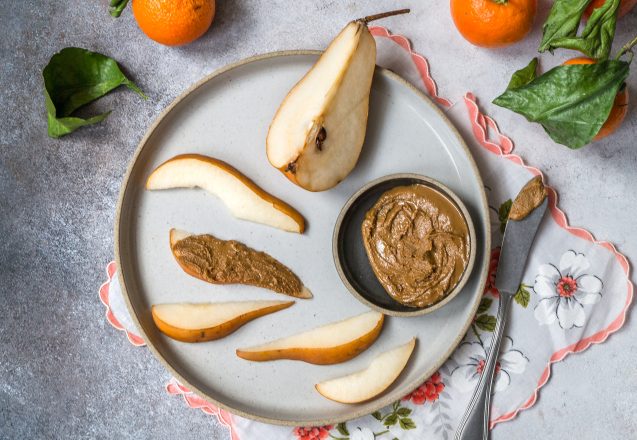
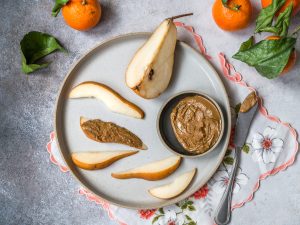 Many people in Fort Lee, NJ, make healthy snacks ahead, so they’re ready when hunger hits. It can happen when you’re driving, at work, or home. Having them ready allows you to snack while sticking with a good nutrition program. Some people may think snacking is bad, but that’s not true. It’s an important part of any weight loss program. It helps you feel satisfied throughout the day so you aren’t tempted to eat junk food and won’t overeat at the next meal.
Many people in Fort Lee, NJ, make healthy snacks ahead, so they’re ready when hunger hits. It can happen when you’re driving, at work, or home. Having them ready allows you to snack while sticking with a good nutrition program. Some people may think snacking is bad, but that’s not true. It’s an important part of any weight loss program. It helps you feel satisfied throughout the day so you aren’t tempted to eat junk food and won’t overeat at the next meal.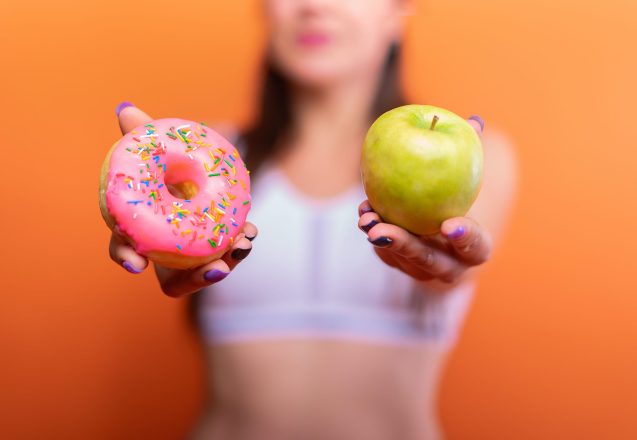
 Low carbohydrate diets play an important role in weight loss. While healthy low-carbohydrate diets are effective and nutritious when based on scientific principles, cutting out all carbs doesn’t follow the rules of good nutrition and can be dangerous. Not all carbs make you fat. Some carbs can help you lose weight while providing important nutrients.
Low carbohydrate diets play an important role in weight loss. While healthy low-carbohydrate diets are effective and nutritious when based on scientific principles, cutting out all carbs doesn’t follow the rules of good nutrition and can be dangerous. Not all carbs make you fat. Some carbs can help you lose weight while providing important nutrients.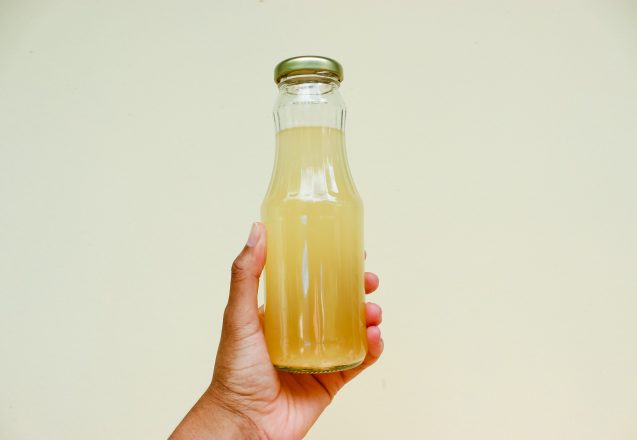
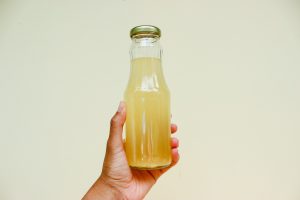 Eating healthy is important. Healthy eating is about avoiding food that harms the body and consuming more food that offers benefits. Is apple cider vinegar—ACV—one of those? Many people in Fort Lee, NJ, believe it is. You can use it as a skin toner, hair rinse, acne treatment, and natural deodorant, but the real power is the flavor it adds to food and the health benefits it provides. ACV can even boost weight loss.
Eating healthy is important. Healthy eating is about avoiding food that harms the body and consuming more food that offers benefits. Is apple cider vinegar—ACV—one of those? Many people in Fort Lee, NJ, believe it is. You can use it as a skin toner, hair rinse, acne treatment, and natural deodorant, but the real power is the flavor it adds to food and the health benefits it provides. ACV can even boost weight loss.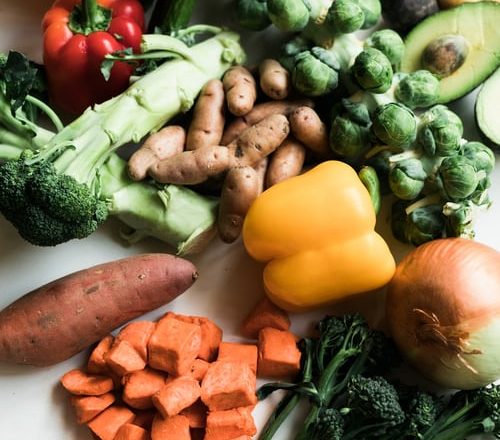
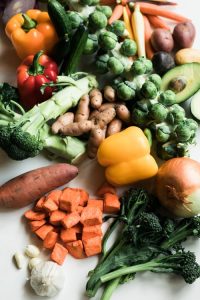 Who doesn’t want a healthy, powerful immune system that helps protect you from illness and serious conditions? Nobody, that’s who. One way to give your immunity a boost is to consume more fruits and veggies. Clients who come to VIP Fitness in Fort Lee, NJ get nutritional counseling. It includes a wide variety of fruits and vegetables. Some help lower blood pressure, others help lose weight and still others can help boost your immunity. So which vegetables are the best if you want a strong immune system to prevent colds, flu, and other illnesses?
Who doesn’t want a healthy, powerful immune system that helps protect you from illness and serious conditions? Nobody, that’s who. One way to give your immunity a boost is to consume more fruits and veggies. Clients who come to VIP Fitness in Fort Lee, NJ get nutritional counseling. It includes a wide variety of fruits and vegetables. Some help lower blood pressure, others help lose weight and still others can help boost your immunity. So which vegetables are the best if you want a strong immune system to prevent colds, flu, and other illnesses?